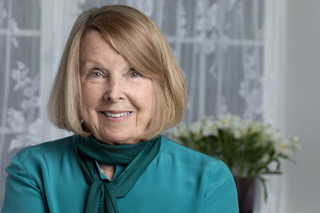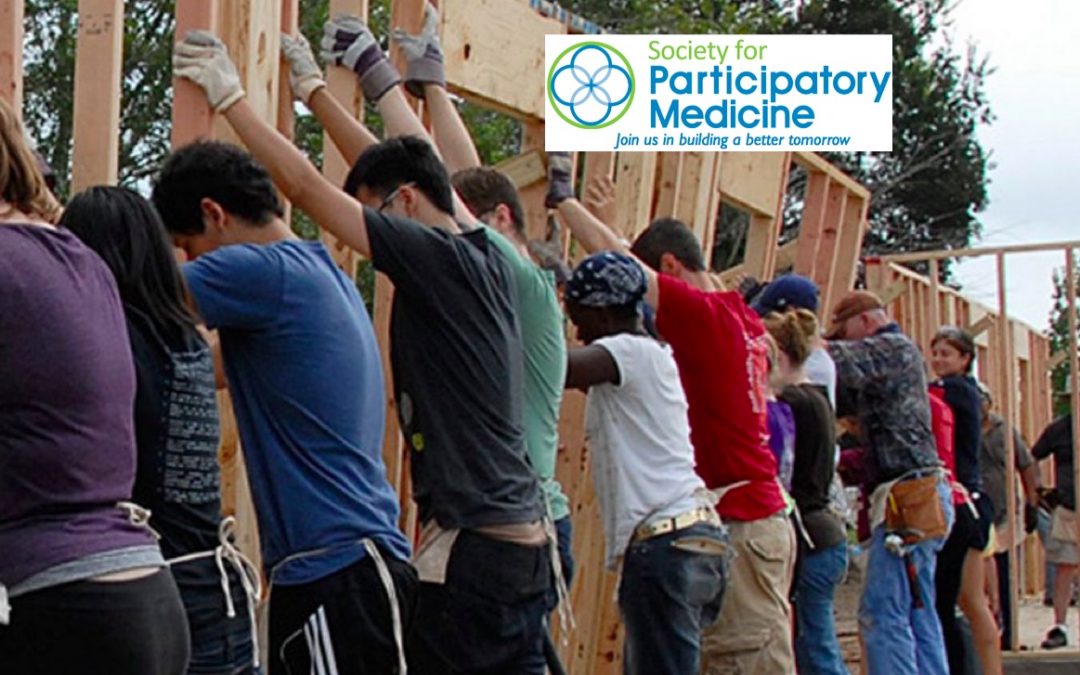 Editor’s note: this guest post by SPM member Gail Phillips shares the odyssey that led her through numerous related disciplines, eventually discovering our society and our conference last October. Members can submit guest posts to our blog (guidelines). Join SPM here.
Editor’s note: this guest post by SPM member Gail Phillips shares the odyssey that led her through numerous related disciplines, eventually discovering our society and our conference last October. Members can submit guest posts to our blog (guidelines). Join SPM here.
I was very fortunate to have attended the Society for Participatory Medicine’s (SPM) Second Annual Conference, in partnership with the Connected Health Alliance Conference, at Boston’s Seaport World Trade Center on October 17, 2018. The theme of the conference Democratizing Healthcare! Me. You. US. Healthocracy was appropriate due to the high number of presenters who were either patients and/or family members. Their presentations were inspirational and demonstrated the importance and philosophy of the organization, with its emphasis on collaboration. Empowerment for all is the desired outcome.
The word empowerment has a special place in my life’s work. Presently, as a Healthcare Advocate, I am very much interested in the concept of empowerment. According to John Hopkins Medicine, the complexity of the healthcare system has given rise to a new professional: the patient advocate.
As a Professional Healthcare Advocate, I am a member of a local advocacy group called the Massachusetts Healthcare Advocates (MAHCA). Its mission is to assist patients and their families in finding the best path through the healthcare maze: “understanding a difficult diagnosis, finding the best treatment options, assisting with doctor visits and subsequent care, deciphering complicated insurance plans and medical bills. Each member of the organization brings a particular specialty to their practice. My specialty is “women and their families”.
I am also a member of the National Association of Healthcare Advocates Consultants (NAHAC) whose mission is to improve patient outcomes through continuing education, promotion of standards of practice and active pursuit of policy changes, leading to high standards of person-centered care. The mission statement of NAHCA went further in defining the concept that is evolving with time. Patients are persons.
Before I began my healthcare advocacy practice, I worked within the healthcare system as a Certified Nurse-Midwife (CNM), committed to and passionate about advocating for women and their families’ unmet needs. I was always concerned and in-tune with the patient experience. I wanted to transform the culture of healthcare for women and their families. I was dedicated to and advocating for patient-centered care. I first became aware of the phrase “patient-centered-care” as a concept promoted by Donald Berwick, MD., of the Institute of Healthcare Improvement (IHI) when it appeared in 2009:
“The experience (to the extent the informed individual patient desires it) of transparency, individualization, recognition, respect, dignity and choice in all matters, without exception, related to one’s person, circumstances and relationships in healthcare.”
When I first found the Centering Healthcare Institute (CHI), I was able to pursue my goal for patient-centered care, and the resulting empowerment for my patients.
CenteringPregnancy and CenteringParenting is an evidence-based model of group healthcare, headquartered in Boston. It brings a paradigm shift that effectively addresses the complex social determinants of health. The Centering model combines health assessment, interactive learning and community building to help support positive health behaviors and drive better health outcomes. It brings patients out of the exam room and into a group setting which also helps build their community of support. The improved patient satisfaction rate, patient engagement as well as outcomes are clearly evidenced.
My experience with facilitating Centering groups was exciting for me and equally exciting for the women and their families. It was clearly an example of patient centered care. I also learned through observing women in group care that it created an environment for patient engagement to grow. The process of engagement seen in CenteringPregnancy and CenteringParenting (patient-centered care) was easily observed and explained in these simple steps:
- The group was facilitated by a healthcare provider.
- The group members set individual goals for their health needs
- The group became a dynamic support system
- The group members shared information and the processing of such
- The group members became engaged and empowered
- The group members began to take responsibility for one’s own health
The Centering Group Care Model had its limitation even though it was a perfect environment to observe the benefits of patient-centered care. The concept of collaboration within the healthcare system was missing; it was a perfect model of care without the collaboration of other healthcare team members’ participation. Therefore, it was not sustainable.
Along my professional life journey, I finally discovered the Society of Participatory Medicine, with its essential goal of empowerment at its core. The organization is an example of patient-centered care and more. It has also incorporated the concept of collaboration into its organization. The mission of the organization is to catalyze collaborative partnerships across the continuum of care to optimize health and healthcare.
The Society for Participatory Medicine is devoted to promoting the concept of participatory medicine, a movement in which networked patients shift from being mere passengers to responsible drivers of their own health, and in which providers encourage and value them as full partners. Participatory medicine is a movement in which patients and professional healthcare providers actively collaborate and encourage one another to be full partners in healthcare. The result is that both parties are empowered.
Along my journey through the American healthcare system, I am satisfied and excited that I finally found the Society for Participatory Medicine. We share a similar mission to improve the culture and quality of our healthcare system. I believe the Society for Participatory Medicine has the power and influence to create a gold standard and sustainable model of health care for all.
Gail Phillips, Phillips Healthcare Advocate
gail@phillipshealthcareadvocate.com






Recent Comments